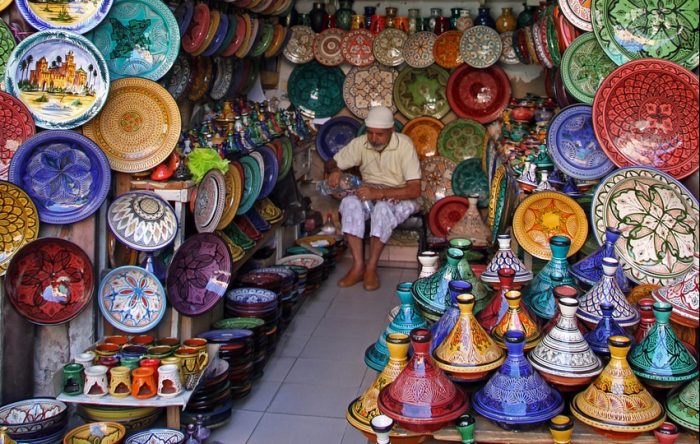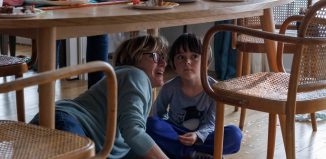Between You and Me: Grieving for the dead and the lost rich heritage
By Leah S. Dunaief

A number of calamitous events have dominated the news lately: floods, fires, hurricanes, cyclones. They have caused thousands of deaths around the globe in places that are remote for us, and as such, inspire our compassion and even our financial aid, but they are not particularly part of us. We are not personally connected to them.
An exception for me was the recent earthquake and its devastation in Morocco. It breaks my heart to think of those welcoming people lying dead in the streets of the picturesque rural Berber villages, the quake stealing lives, destroying families and homes in its wake, continuing still, with its deadly aftershocks. At least 3000 dwellers are estimated to have died in the mountains southwest of Marrakesh.
I visited Morocco some years ago and found it to be one of the more exotic and memorable of destinations: the calls to prayer five times a day, the women’s total cover-up abayas with only their eyes showing, the dramatic Atlas Mountains crowned with snow in the distance, the wonderful food, especially tagines or casseroles, the conspicuous patriarchy where only men sat in the coffee houses smoking and laughing, with few women on the street, the special sunlight, the bold colors and omnipresent scent of spices, the squares filled with vendors in hooded djellabas tending their stalls of foods and crafts. Also I saw water carriers, musicians, snake charmers, along with an acrobat and an animal trainer holding a colorful beast on a leash.
A special standout was the ancient city within Marrakesh, with its red walls constructed from the red sandstone and its Medina, a concentration of narrow alleyways, a UNESCO World Heritage Site. The City was founded in 1070, right around the time the Normans were conquering England far to the North and west. Marrakesh grew rapidly and became a cultural, religious and trading center. Eventually sultans built fabulously decorated palaces, sumptuous mosques, citadels, casbahs and monuments, richly decorated with Moorish calligraphy, geometric shapes and ceramic tiles, some of which were visited before the quake. Who knows now what remains?
There is something about the sunlight in Marrakesh that has attracted artists. Colors seem more intense. Delacroix, Matisse and Dali, among many others, spent time there, painting behind the walls. Churchill loved to secret himself with his paints and brushes, creating what has been considered quite good art. One such painting, “Sunset over the Atlas Mountains,” was painted in La Mamounia, a beautiful hotel, two-centuries old but dramatically updated, with a 20-acre magnificent garden, where I, too, stayed with my tour. Is it still standing and intact?
In Morocco, residents drink mint tea. It’s surprisingly refreshing from the heat during the warmer seasons, and it was a mark of their hospitality that a glass of the tea was offered as one entered a store. Our tour was led to a rug emporium, and sure enough, we were given glasses of mint tea. I accepted mine gratefully and sat on the sidelines as salesmen rolled out rugs for many of my companions. I did not need a rug, and so I watched as the scene unfolded.
“Be careful,” our tour guide whispered in my ear. “By the third mint tea you will buy a rug.”
I laughed. I kept accepting refills. We were there for perhaps an hour when the guide summoned us back to the bus. I was intrigued by the couple in front of me, who had been negotiating the price with the salesman for a dramatically colored large rug. Now they turned away as we all got up to file out. Panicked, the salesman called out after them the price they had been offering, but they didn’t turn back.
Desperate, he saw me eyeing the rug. “Would you like to buy?” he entreated.
“How much?” I asked. He dropped the price even further.
I bought the rug. It sits on my living room floor, connecting me to Marrakesh, which will never again be the same.







